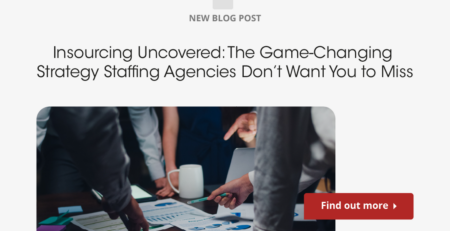7 Stress Relief Tips for Creatives
Stress can be caused by many factors in the workplace. For creatives, overworking under significant pressure may overwhelm the mind and stifle the imagination. In today’s increasingly digital world, signs of stress are more easily overlooked or misattributed to other causes.
Luckily, there are also many things you can do to reduce stress and avoid creative burnout. It all starts with realizing when you’re stressed and then identifying the source of that stress. There’s nothing more important for workers in a creative field to keep their minds sharp.
Read on to find out some of the telltale signs of workplace stress and some of the most effective stress relief tips for creatives.
Stress at the Workplace
We’ve all seen it happen to coworkers and more than likely had it happen to ourselves as well: irritability, exhaustion, and even panic related to our jobs. This anxiety can come from a variety of stressors, but no matter what its source, it can lead to serious physical manifestations and mistakes caused by neurotic and sped up work.
Even in a comparatively relaxed environment, there are plenty of stressors. It only makes sense. After all, our jobs are the main way – the only way, for many – that we can earn a living.
But stress doesn’t always come from the fear of losing one’s job. For many creatives, the pressure to outshine the competition and continue producing innovative work also causes plenty of anxiety. In addition, creatives have a special pride in their work that doesn’t always exist for people in non-creative roles.
Where Does Stress Come From?
Stress is actually a good thing in small doses. Our bodies developed the stress response to help us avoid predators and other dangers. Stimuli go from our ears or eyes to our amygdala, the brain’s emotional processing center, which then sends a distress signal to the hypothalamus.
The hypothalamus is like the captain’s chair for the rest of your body. Even if you don’t remember the specific sections of your brain that cause a stress response, you should know that blood pressure, heartbeat, and breathing can all be affected.
The hypothalamus also gives your body extra energy to fight or flee during stressful situations. That many have been well and good for our ancient ancestors, but in a workplace environment it usually just makes us jittery and probably causes us to work too quickly and make mistakes.
In terms of external sources of pressure, just about anything can cause stress if you let it. Traffic jams and other small inconveniences cause small amounts of stress or frustration. Larger problems like deadlines, customer service, termination, or money worries can provoke a much larger response.

Common Workplace Stress Factors
Studies on workplace stress have revealed many alarming things, but they also shed some illustrative light that should help us take a more rational look at what stresses us out at work.
For example, a quarter of people studied said their jobs were the most stressful thing in their lives. 80% stated that they felt some stress because of their work and half of that amount said they needed help to deal with the stress.
Four categories were identified as the most common source of workplace stress:
1- Workload – 46%
Creatives are under constant pressure to meet deadlines. It might be for a finished product, a prototype, or other deliverables like research or personas. Committing to too many deadlines at once is a surefire way to stress yourself out.
One common problem for creatives is that management doesn’t fully understand what the art department or creative team does. This causes them to have unrealistic expectations and assign too many deadlines or leave insufficient time for tasks to be completed. Remote work has increased this likelihood since management can’t see remote creative workers.
2- People Issues – 28%
Management might be overbearing, clients could be too demanding, or coworkers could be creeps or just unpleasant to work with. Whatever the specifics, other people always seem to be involved in stressful situations.
Learning how to work with people who have different political opinions or a wildly different approach to problem-solving is an arduous task, but it’s well worth it for all the stress it will save in the future.
3- Work-Life Balance – 20%
Remote work and the ever-evolving slew of messaging platforms are making it increasingly difficult to really unplug and get off the clock officially. If you don’t set a clear schedule, you’re much more likely to be answering emails at midnight.
For remote workers, building a dedicated workspace is also helpful. If you work from the couch, you won’t have anywhere to move to when you’re off work and want to relax. Getting to a good work-life balance is partly about mentality and partly about drawing clear professional boundaries.
4- Job Security – 6%
This particular stressor is bound to have a more significant impact at different times depending on the general state of the job market. But if your source of income is threatened then all the rest of your life is threatened, too. While it thankfully isn’t a recurring stressor for most of the study respondents, the potential for job loss is easily the most stressful situation any professional can find themselves in.
What is Creative Burnout?
Burnout is a term that was invented in the 1970s by an American psychologist named Herbert Freudenberger. After sustained periods of very high stress levels, people become so worn down that they aren’t able to deal with problems, have lost all excitement for their jobs, and may even be dealing with symptoms of severe depression. This listlessness is called burnout.
Workers in any field can experience burnout. From teenage cashiers who burn out because they’re tired of customers to creatives who burn out because they’ve just been at it too long, burnout is a serious concern. It could take a significant amount of time and energy to overcome burnout once you’ve had it.
Creative burnout is unique because it doesn’t necessarily have to be complete exhaustion with all aspects of the work. In fact, many people take comfort in the more routine tasks of their job when they’re blocked up and can’t think of any new ideas.
That loss of creative energy is the hallmark of creative burnout, which can cause designers and other creatives to lose faith in their profession entirely.
Early Warning Signs of Stress & Creative Burnout
Everyone experiences stress to some degree and we all have different ways of showing it. However, there are some clear signs that you’re under stress, and recognizing them will is the first step toward stress reduction at work. Look out for the following symptoms of stress:
- Headache
Your brain is working overtime when it’s stressed. Pair that with other physical changes that are part of the fight or flight response and you have lots of blood pumping and quick breathing going on. Plus, you might be forgetting to drink enough water when you’re stressed, which can help create headaches.
- Sleep Disturbances
Tossing and turning about unresolved problems is a common result of stress. If your brain can’t calm down, it’s hard to get to sleep. You may also be plagued by dreams about the stressful situation as your brain processes the events of the day.
- Short Temper
The physical and mental fatigue of stress can easily make even the nicest person a bit snappy with others. This is an unfortunate side effect because it often keeps people at a distance who could otherwise help resolve the stressful situation.
- Reduced Enthusiasm
Besides just feeling tired or mad, you could also start to lose the passion you once held for your job. This is very closely related to creative burnout and may spread to other areas of your life as well.
- Symptoms of Illness
Sustained stress can also put a damper on your body’s immune system. Losing sleep certainly doesn’t help. People who are prone to stress eating could also be cramming in unhealthy processed foods instead of getting the vitamins and minerals their bodies need to stay healthy.
Stress Reduction at Work: Identifying Causes
The most important thing you should do once you’ve recognized the early warning signs of stress is to find out what’s causing the stress. In most cases, the simplest answer is also the correct one. But sometimes there’s something larger going on behind the scenes that we’ve become blind to one way or another.
If your workplace has a very strict hierarchy, stress may be caused by ineffective management. Lack of support, perceived unfairness, poor communication, lack of appreciation, or a work-reward imbalance are just some things created by mismanagement that can cause stress for workers.
Sudden changes also provoke a stress response. That might not necessarily be in the workplace, but if there’s a big change in your personal life it could be affecting you in ways you weren’t expecting.
A lack of autonomy and control can also be very stressful. Creatives typically go to great lengths to learn the tricks of their trade but working with stakeholders who aren’t in creative roles themselves often stymies the efforts of creatives and makes their job more difficult.
The most important time to identify stressors is when you are experiencing the early symptoms and cannot logically identify why you might be stressed out. We tend to block out certain things so that we can continue on with our lives. We just get overwhelmed sometimes and don’t realize it until it’s too late.
7 Stress Relief Tips for Creatives
Losing your imaginative drive because of stress isn’t just bad news for your job. Creatives have a dedication to their craft the goes beyond the workplace. Losing a creative outlet to burnout can be a bleak process in your personal life as well.
If you do find yourself overwhelmed or consistently exhibiting some of the early warning signs of stress, try some of the following methods to overcome the stressful situation:
1- Say It Out Loud
One of the worst things about stress is that it isn’t always a logical response. It also makes us irrational, which means our response to the stressful situation can far outweigh the real impact of the stressor itself.
Sometimes the thing that has us stressed out is kind of silly or has absurd humor to it. Stating the problem out loud not only helps us recognize when we might be overreacting, but it also helps us clearly identify the central stressor.
If you don’t want your coworkers to think you’ve snapped and started talking to yourself, you can get similar benefits by writing your problem down.
2- Go Outside
With everything so computer-oriented these days, it’s easy to go for long stretches without going outside except to run errands or commute. Even a short walk can help boost your mood and take your mind off things. Plus, you might run into neighbors or friends and that social interaction is also very helpful.
The CDC recommends adults get 150 minutes of brisk activity each week. That could be a half-hour walk five times a week, for example. It helps to give your body calming stimuli completely unrelated to the stressors at work.
3- Meet Friends & Family
Socializing is a great way to distance ourselves from stressful situations in our professional lives. Friends and family might also be our biggest supporters and confidantes, making them ideal candidates for a gripe session.
Jobs stress us out because they’re how we make a living. It’s important to see friends and family so we can remember what kind of living we’re working to make.
4- Avoid Caffeine
The image of the creative burning the midnight oil with a pot of coffee on the desk beside them may have an allure for some, but all that caffeine only increases the jitters and quickened heartbeat that our natural stress response provokes anyway.
It’s quite common for the jittery symptoms from too much caffeine to make you feel stressed on their own, even when you’re not in a particularly stressful situation.
5- Try New Things
If your creative output is what has you stressed, you might need a new perspective or new stimuli. Try something you haven’t done or don’t do often so your mind can chew on some novel information. You might try a new activity like yoga or hobbies such as cooking, photography, or music.
Museums are also great places for seeing unique things. If it’s feasible, traveling to a new city can help, even if it’s only for a day or two.
6- Occupy Yourself With Small Tasks
Stress reduction at work doesn’t have to be a momentous or long-lasting problem. If you find yourself stressed out one day, try concentrating on the more routine aspects of the job. As long as you can still feel productive, the stress response shouldn’t have too big an impact.
7- Take Advantage of Constraints
This is one of the most vital stress relief tips. There’s a limit to the creativity and enthusiasm of every creative, so rather than getting depressed about that, why not look at it as a tool? After all, necessity is the mother of invention.
If you know you only have so much dedication to work with – say, you can work in earnest for 2 hours before you’re tired of it – then build your schedule to suit. Your inspired moments may not come at the same time every day, but you can build a schedule that allows you to hop into action when you do get inspired.
Coming up with creative solutions is a central part of the job description for most creatives, but too often that problem-solving is reserved for clients and stakeholders and not for stress reduction at work.

Conclusion:
Stress reduction at work is a tricky subject. Since we can be stressed out to varying degrees by any number of factors, getting rid of that stress is often complicated. However, if you know yourself well enough and have the right tools to properly identify the main stressor, solving the issue becomes much easier.
Hopefully, some of the stress relief tips in this article will help next time you find yourself overwhelmed or in a creative funk. The most important things to remember is that everyone experiences work-related stress and life will never be completely stress-free. Our enthusiasm has limits, even for things we really enjoy. Realistic expectations are a good place to start for creatives who want to reduce their work-related stress.
WordPress Information:
Meta Description: Burnout and writer’s block are constant worries for creative workers. Find out how you can relieve stress in a creative job with this helpful guide!












